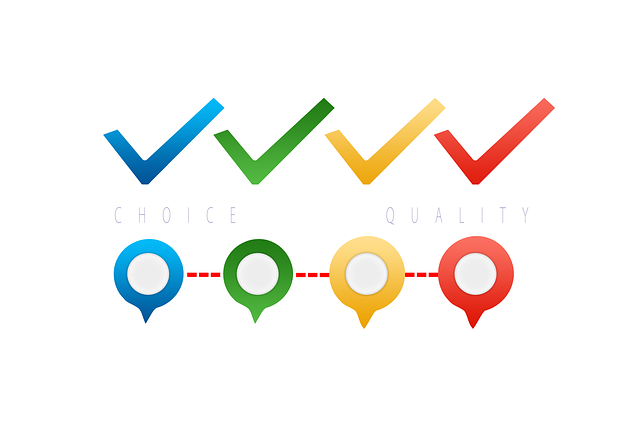“VIN validation services are indispensable tools in the automotive industry, acting as the cornersto…….
Category: VIN verification process
VIN Verification Process: Unlocking Vehicle Identity and Integrity
Introduction
In the modern era of automotive innovation, ensuring vehicle authenticity and history is more crucial than ever. Here, we delve into the intricate world of the VIN (Vehicle Identification Number) verification process—a critical procedure that plays a pivotal role in maintaining the integrity of the global automotive market. This article aims to guide readers through the complexities of VIN verification, highlighting its significance, methodologies, and the far-reaching impacts it has on industries, consumers, and the environment. By exploring various facets, from historical roots to future prospects, we uncover the essential elements that contribute to a robust and reliable process.
Understanding VIN Verification Process: Unraveling the Basics
Definition: VIN verification is a systematic process of examining and confirming the authenticity of a vehicle’s unique identification number—the Vehicle Identification Number (VIN). This numerical code, typically consisting of 17 characters, serves as a digital fingerprint for each automobile, providing detailed information about its manufacturing details, specifications, and service history.
Core Components:
-
VIN Decoding: The initial step involves decoding the VIN to extract essential data points like make, model, year, engine type, and production facility. Specialized software and databases are employed to interpret these codes accurately.
-
Historical Data Check: This process entails verifying the vehicle’s service history, including ownership records, maintenance logs, and accident reports. By cross-referencing this information with the VIN, any discrepancies or fraudulent activities can be identified.
-
Physical Inspection: In some cases, a physical examination of the vehicle is conducted to match its actual condition with the recorded data. This includes checking for signs of tampering, accident damage, or unauthorized modifications.
Historical Context: The concept of VIN verification emerged in the 1950s as automakers sought ways to combat theft and ensure the integrity of their products. The first VINs were relatively simple codes, but with advancements in technology, they evolved into sophisticated identifiers. Today, it is a global standard, mandated by law in many countries, to prevent fraud, facilitate ownership transfers, and support insurance claims.
Global Impact and Trends: A Worldwide Effort
VIN verification has transcended geographical boundaries, becoming a unified process across the globe. This international adoption is driven by several key trends:
-
Cross-Border Trade: With the rise of online vehicle marketplaces and global trade, VIN verification ensures that vehicles imported or exported comply with local regulations and standards, preventing fraud and ensuring consumer protection.
-
Data Sharing Agreements: Regional collaborations facilitate the sharing of vehicle data across borders, enhancing the effectiveness of verification processes and allowing for more comprehensive historical records.
-
Digitalization of Records: The transition to digital record-keeping has streamlined VIN verification, enabling faster and more efficient cross-referencing of data globally.
Economic Considerations: Market Dynamics and Impact
The economic implications of VIN verification are far-reaching, influencing various sectors within the automotive industry:
| Sector | Impact |
|---|---|
| Automotive Manufacturers | VIN verification reduces fraud, enhances brand reputation, and facilitates market entry for new models. It also supports post-sales services and warranty claims. |
| Dealers and Sales Channels | It provides transparency to buyers, builds trust, and ensures the authenticity of vehicles on offer. This can lead to improved sales and customer satisfaction. |
| Insurance Companies | Accurate vehicle history data helps insurers assess risk, set premiums, and process claims more efficiently. It also aids in identifying fraud and fake insurance claims. |
| Finance Institutions | Lenders rely on VIN verification to secure loans, reduce defaults, and minimize the risk of repossession due to fraudulent ownership transfers. |
Technological Advancements: Revolutionizing the Process
Technological breakthroughs have significantly enhanced the efficiency and accuracy of VIN verification:
-
Online Databases: Centralized digital databases, accessible via dedicated platforms or APIs, enable real-time cross-referencing of VINs against vast datasets, including historical records, recall information, and reported accidents.
-
Artificial Intelligence (AI): AI algorithms can analyze patterns in vehicle data, detect anomalies, and predict potential issues, enhancing the accuracy of verification processes. Machine learning models can also adapt to new data, improving over time.
-
Blockchain Technology: This distributed ledger technology offers enhanced security and transparency by creating an immutable record of vehicle ownership transfers and service history. It ensures data integrity and reduces fraud.
-
Computer Vision: Image recognition software can scan and interpret visual cues on vehicles, such as serial numbers or unique markings, to validate their authenticity.
Policy and Regulation: Governance in Motion
Governing bodies worldwide have implemented policies and regulations to standardize and enforce VIN verification:
-
ISO 3778: This International Organization for Standardization (ISO) standard provides guidelines for the format and structure of VINs, ensuring global compatibility and consistency.
-
National Laws: Many countries have enacted legislation mandating VIN verification for various transactions, such as vehicle sales, registration, and insurance claims. For instance, in the United States, the National Motor Vehicle Title Information System (NMVTIS) is a federal database that tracks vehicle history and supports verification processes.
-
Regional Agreements: Regional blocs, like the European Union (EU), have implemented harmonized standards and regulations for VIN verification, facilitating cross-border trade while ensuring compliance.
Challenges and Criticisms: Overcoming Obstacles
Despite its significance, the VIN verification process faces several challenges:
-
Data Inconsistencies: Discrepancies in vehicle data across different databases or record-keeping systems can hinder accurate verification. Standardizing data formats and improving data quality are essential solutions.
-
Fraudulent Activities: Skilled criminals employ sophisticated methods to alter VINs or create counterfeit vehicles, posing significant challenges. Advanced authentication technologies, such as blockchain and AI, offer promising countermeasures.
-
Accessibility and Cost: In some regions, access to advanced verification tools and databases may be limited due to cost or infrastructure constraints, creating a digital divide in vehicle ownership verification.
Case Studies: Real-World Success Stories
Case Study 1: United States – NMVTIS (National Motor Vehicle Title Information System)
The NMVTIS, established by the U.S. Department of Transportation, is a comprehensive database that records vehicle history and supports VIN verification for lenders, insurers, and consumers. It has reduced fraud and improved transparency in the nation’s automotive market. By 2021, over 350 million titles had been recorded on the system, demonstrating its widespread adoption and impact.
Case Study 2: Europe – EuroVIN (European Vehicle Identification Number System)
EuroVIN is a pan-European initiative that facilitates cross-border vehicle ownership transfers by providing a standardized VIN verification process. This system has simplified administrative procedures for dealers and consumers while ensuring compliance with EU regulations. The success of EuroVIN highlights the importance of regional cooperation in global markets.
Future Prospects: Looking Ahead
The future of VIN verification is filled with promising opportunities and emerging trends:
-
Advanced Authentication: Biometric identification, such as fingerprint or facial recognition, could be integrated into VIN verification processes, adding an extra layer of security to vehicle ownership transfers.
-
Internet of Things (IoT) Integration: As vehicles become increasingly connected, IoT devices can provide real-time data on vehicle location, maintenance needs, and operational status, enhancing the accuracy of VIN verifications.
-
Global Data Harmonization: Efforts to create a unified global database, combining various regional systems, will streamline verification processes and reduce administrative burdens.
-
Regulatory Evolution: As autonomous vehicles gain prominence, new regulations will likely emerge, requiring advanced VIN verification methods to ensure the safety and integrity of self-driving cars.
Conclusion: A Cornerstone in Automotive Integrity
VIN verification stands as a cornerstone in maintaining the integrity, security, and transparency of the global automotive market. Its evolution from a basic identification system to a sophisticated data-driven process reflects technological advancements and changing market dynamics. As vehicles become more interconnected and complex, VIN verification will continue to adapt, ensuring consumer protection, supporting legitimate trade, and fostering trust across borders.
FAQ Section: Addressing Common Queries
Q: Why is VIN verification important for consumers?
A: VIN verification protects consumers by ensuring the vehicle they purchase or insure is genuine and has not been involved in fraudulent activities or accidents. It provides a level of security and peace of mind.
Q: Can I verify a VIN without specialized software?
A: While it’s possible to decode a basic VIN using online tools, comprehensive historical data checks often require access to specialized databases and software. Dedicated platforms offer advanced features for professionals.
Q: How does VIN verification impact the automotive industry?
A: It reduces fraud, streamlines ownership transfers, facilitates cross-border trade, and supports post-sales services. For manufacturers, it aids in brand protection and market entry, while dealers benefit from increased transparency and customer trust.
Q: Are there any legal penalties for providing false VIN information?
A: Absolutely. Providing false or altered VIN data is illegal and can result in severe penalties, including fines and imprisonment, depending on the jurisdiction.
Q: Can blockchain technology completely eliminate fraud in VIN verification?
A: Blockchain significantly enhances security but cannot guarantee complete elimination of fraud. It provides an immutable record, making it much harder for criminals to alter vehicle data. However, human oversight and advanced authentication methods remain crucial.
VIN Inspection: Securing Vehicle Identity & Car Registration Integrity
“VIN validation services stand as a bulwark against automotive fraud, offering a meticulous approach…….
VIN Verification: Securing Car Dealings with Vehicle Identity Checks
VIN validation services are transforming the car buying and selling experience by offering a critica…….
VIN Verification: Uncovering Vehicle History for Secure Car Registration
Conducting a VIN (Vehicle Identification Number) inspection is a crucial step in ensuring vehicle au…….
Seamless Car Registration: The Power of Accurate VIN Verification
A seamless car registration process begins with meticulous VIN inspection, a critical step in vehicl…….
Seamless Car Registration: The Power of Accurate VIN Verification
“Seamless car registration hinges on a critical yet often overlooked step: accurate Vehicle Identifi…….
VIN Inspection: Securing Car Titles & Enhancing Vehicle Identity Verification
“Vin validation services are transforming vehicle identity verification by offering in-depth analyse…….
Unveiling Vehicle Truth: VIN Inspection for Secure Car Title Verification
The Vehicle Identification Number (VIN) is more than just a sequence of characters; it’s a car’s uni…….
VIN Verification: Securing Car Transactions with Identity Assurance
“VIN validation services are transforming vehicle identity verification by providing a robust founda…….
Vin Verification: Unlocking Vehicle History for Secure Car Transactions
Conducting a VIN (Vehicle Identification Number) inspection is a critical step in vehicle identity v…….









